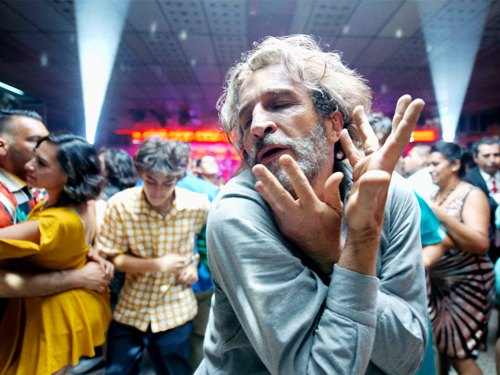
 The latest magical realist epic from Alejandro G. Iñárritu portrays the inner life of a Mexican filmmaker, and the struggles he must go through for his art and his country.
The latest magical realist epic from Alejandro G. Iñárritu portrays the inner life of a Mexican filmmaker, and the struggles he must go through for his art and his country.
Alejandro G. Iñárritu doesn’t do anything by half measures. After conquering Hollywood and coming away with two Oscars, he has now made a film closer to his heart, an introspective portrait of the artist’s world, private and public, and about his home, Mexico. But because it’s Iñárritu, it’s also an epic.
Bardo: False Chronicle of a Handful of Truths takes autobiography as a starting point, not a goal. Let’s see what sounds familiar: journalist and documentary filmmaker Silverio Gama (played by the mesmerizing Daniel Giménez-Cacho) has returned to Mexico after fifteen years living in the L.A. area. His work is admired in his homeland, but there is some ambivalence towards him because he left the country to find a wider stage for his work. These are definite parallels with Iñárritu himself, and he has that experience to draw from, yet Silverio is not exactly him—the character being a journalist makes his point of view more directly critical towards the society of which he is a part.
He has a family: a brilliant wife, a young adult daughter, and a teenage son. They adore him and at the same time they are exhausted by him, his arrogance and charisma, his constant attempts to control. He is about to receive an American award for life achievement in documentary. This prize, awarded to a Latin American for the first time, makes his family and friends, and Mexico in general, proud, but also evokes the split identity of an artist who has gained success in the United States while always aware of the history and power disparity between that country and Mexico. This wound becomes deeper as the film proceeds: Silverio casts a cold judgmental eye on the crimes and massacres that have marked Mexico’s history.
I’ve presented the basic outline of the film as if it were a straightforward narrative, but that’s not what the experience of watching it is like at all. We start without the barest notion of what’s going on, scenes in which our point of view character appears to be caught in some bizarre dream. What is actual and what is imagined? First we see impossible, disturbing and surreal events. Later the symbolism falls away and we gradually discover the personal facts, some traumatic, which the symbols disguise and reveal. But from scene to scene, we can slip back into a kind of dream state, or a midpoint between waking and sleeping, while the film also evokes the universe of ideas that this proud, humorous, mystified intellectual grapples with every day in a parallel action to the ordinary details of his life.
One of the picture’s wry jokes is when someone criticizes Silverio’s films as habitually oneiric instead of relying on discernible facts as a documentary should. Of course, the film we’re watching is doing exactly that. But Iñárritu, who co-wrote the picture with his long-time screenwriter Nicolás Giacobone, is past taking a detached ironic view of things—Silverio goes through a cavalcade of extreme situations and states: laughter, rage, grief, celebration, fatalism, playfulness, arousal, bitterness, and, increasingly—horror. The film seeks to scale the heights and plumb the depths of a man’s psyche.
Bardo is a Tibetan word meaning a state between life and death. The entire story takes place in a bardo. Bardo: False Chronicle of a Handful of Truths goes as far as it possibly can, or so it seems, until finally it crosses a boundary and goes even further.

